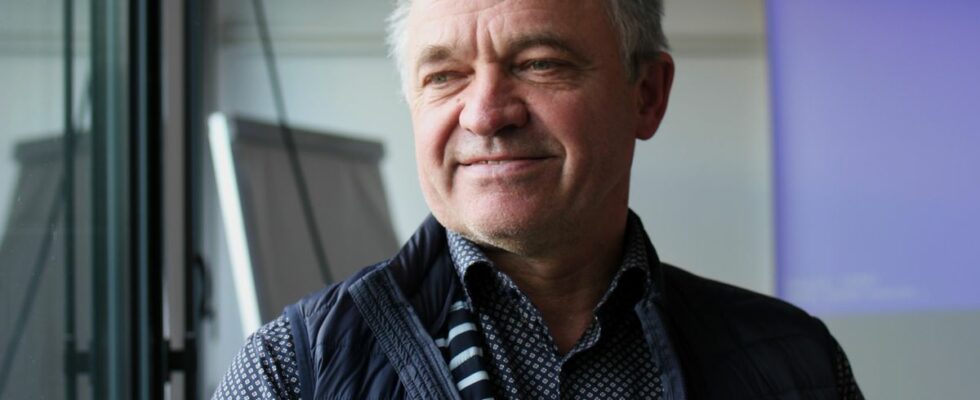It alone ticks several boxes of Breton agriculture bingo. A dairy cow breeder, André Sergent is also a pig breeder and “energy producer” since he produces gas and electricity on his imposing farm in Beuzec-Cap-Sizun, in Finistère. President of the regional chamber of agriculture, the man is obviously a member of the powerful FNSEA. A follower of conventional agriculture “capable of feeding”, he is not renowned for his environmental commitment but vigorously defends French production. As the Paris Agricultural Show opens, 20 minutes met the boss of the first French agricultural region. The opportunity to talk about inflation, food sovereignty and consumer choice.
You mentioned your fears for your profession when the war in Ukraine had just broken out. What about a year later?
We feel that we can prepare for an upturn. The context should be more favorable in 2023 for farmers, particularly in terms of prices. There are signs of hope. In conventional, the milk is sometimes increased to more than 500 euros per 1,000 liters. In thirty years of work, I had never seen that.
Michel-Edouard Leclerc announces “a red second quarter” with price increases of 12 to 14%. Do you think like him?
I’m afraid yes. I think price increases are not over. In 2022, food inflation reached 13.2%. We have seen the dangers of being dependent on this or that market. We have also seen energy costs skyrocket. In some sectors such as eggs, expenses have increased by 45% in three years. The selling price has therefore increased and we have seen consumer behavior change. People buy less and buy cheaper. We cannot dictate their behavior.
Why this change in behavior?
Two years ago we had a Covid-19 effect where we saw that food was essential. We cooked more, we had time and the share of food in the budget had increased. All that quickly deteriorated, in particular because of the war in Ukraine. Today, consumers are looking above all for price. Our agriculture must remain accessible so that people can buy it, it must produce. Did you know that half of the poultry consumed in France is imported? If we do nothing, it will be the same for our cows, our eggs. It is up to us to highlight our French and Breton production. We would be mistaken if we went too quickly towards organic and labels. The reality of the market is that consumers have turned away from it for cheaper products.
Do you think the constraints should be eased as you requested last year faced with the threat of famine?
I’m not saying that we should do as before with phytosanitary products, but I would like us not to combine prohibitions. We have Breton breeders who sold their cages to breed outdoors, because it was a societal demand. But it has a cost. And what do we see happening in France? Eggs laid elsewhere in Europe in the same cages that we sold. It’s the same thing with the cherry trees that we uprooted a few years ago. But the French continue to eat cherries. It’s because they come from elsewhere, treated with products that are forbidden to us today. If it is not produced in France, then it will come from elsewhere. This is the paradox of our societal expectations.
The profession has great recruitment difficulties. Can the Salon de l’agriculture be used to attract younger generations to your trades?
It must. We have young people, but we have to make them want to do these jobs. Our food sovereignty is at stake. In Finistère, I’ve seen cooperatives that couldn’t find anyone to pick up the vegetables, so the vegetables stayed in the fields. You imagine ? The workforce has become a determining factor in our businesses. The expectations of young people have also changed. We must guarantee them that they will be able to make a living from their profession, but that is not enough. We must initiate an agroecological transition that takes their aspirations into account. They are like our society, they aspire to have free time, a family. But I remain convinced that our professions have a future. Because food remains essential. France must retain its sovereignty to be less dependent on external factors.

